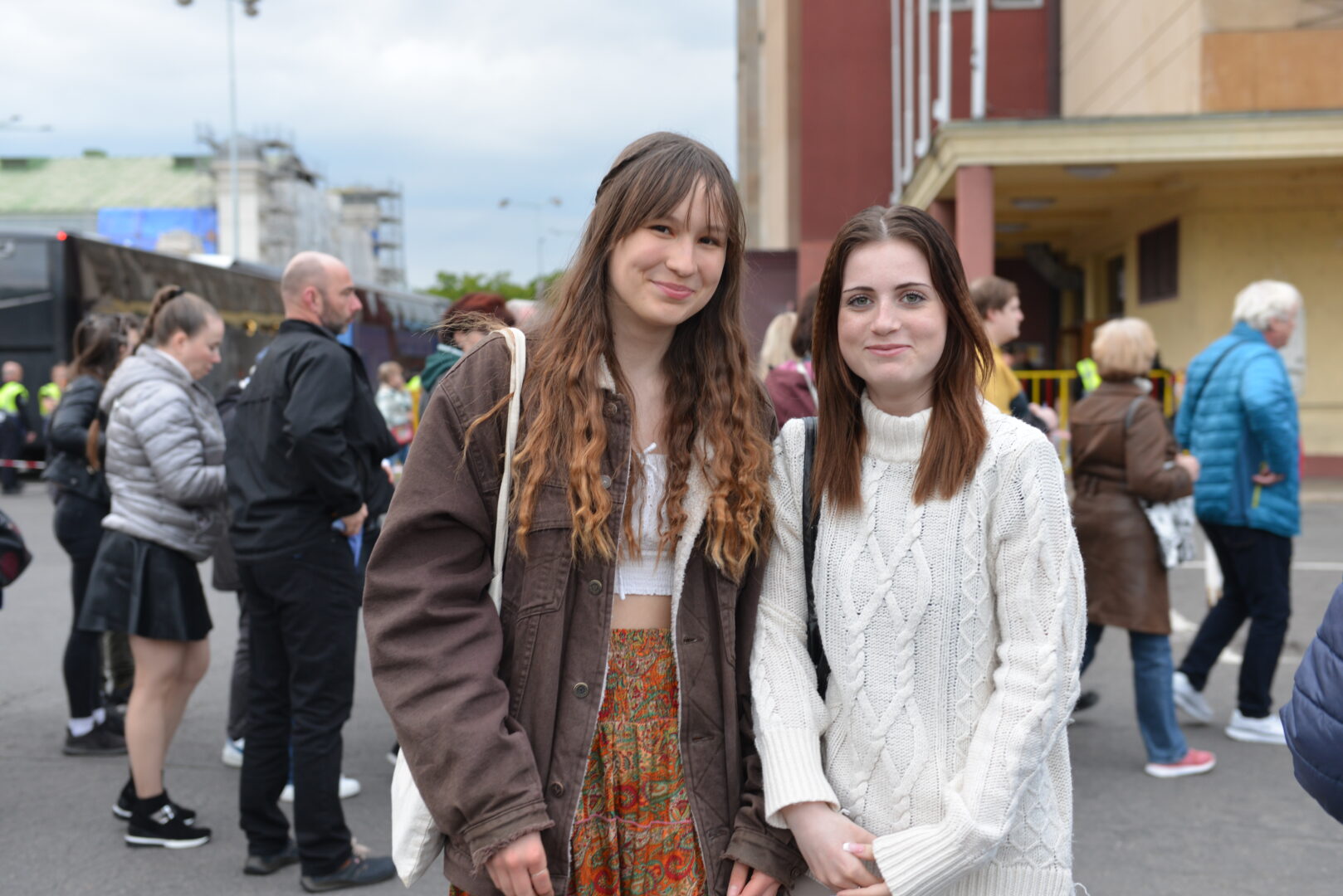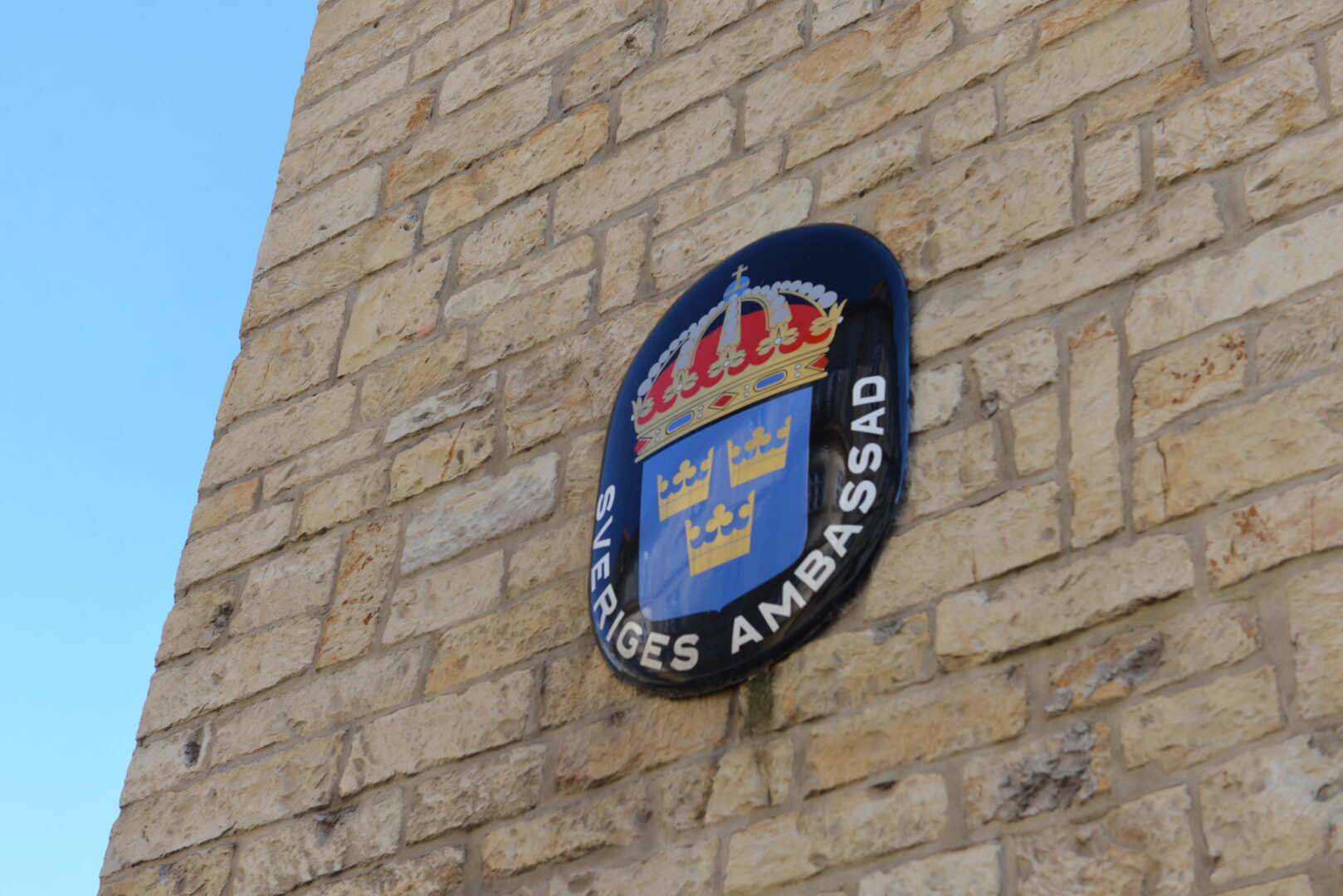Text by Saskia Reimann and Emilia Söderholm
“Waterloo signifies the start of immense joy, and of course, a great career for ABBA, but a profound joy of life for everyone who has followed all the band’s future music and songs, carrying this feeling of life within them”, states Ulrike (59), who has been an ABBA fan from the very beginning, since 1976 to be correct. She went to “The Show a Tribute to ABBA – The 50th Anniversary Tour”, where a tribute band performed on April 26 at the Sportovní Hala Fortuna in Prague.

50 years ago, on the 6th of April 1974, at the time a rather unknown group of four, took to the Eurovision stage in Brighton, Great Britain. ABBA, consisting of the four members Agnetha Fältskog, Björn Ulvaeus, Benny Andersson, and Anni-Frid Lyngstad performed their acclaimed hit Waterloo and at the end of the night it was clear – Sweden had won their first ever Eurovision victory. Almost overnight ABBA rose to fame and since then they have added around 100 songs to their repertoire including “Dancing Queen”, “Gimme! Gimme! Gimme!” and “Lay all your love on me”.
ABBA is pop music that goes beyond pop music
As mentioned by Ulrike “It’s pop music that goes beyond pop music, something between chanson and classical music, but still pop music. They have adapted to all trends, but they have also set trends”.
After winning, ABBA also quickly became popular in what was then Czechoslovakia, and it seems there was more than one reason for it. “Most of the musicians who were really good during the 60s couldn’t continue after ‘68 ’69, so they were forgotten or forbidden”, explains Martin Severýn (38), communication and culture officer at the Swedish Embassy in Prague.

What Martin is referring to is the suppression of the Prague Spring in 1968, after which a brief period of artistic liberalisation was followed by harsh suppression, including the banning of non-conform music. According to him, musicians had to “collaborate with the system”, and even these “singers and songwriters were really inspired by ABBA” and were using the ABBA songs to make covers out of them.
ABBA and the Mamma Mia Movie
Martin can’t remember when he heard Waterloo for the first time, but he was introduced to ABBA through his parents. Over the years he has been able to create his own relationship with the band and the music. The Mamma Mia movie which was released in 2008 helped a lot. He first watched it at the Karlovy Vary International Film Festival where it was the very last film to be screened. He explains the screening as something extraordinary.
“Those hits made the whole theatre with almost 2 000 spectators stand up and dance and it was one of the biggest experiences I had in my life. It really was such a relief and so much energy came from the songs”, says Martin.
And it seems like Mamma Mia is also for another audience the first point of contact with ABBA. Some of the youngest visitors of the tribute show Kate (15) and Barbora (17) became ABBA fans after watching the movie.

Eliška and Nela also discovered ABBA through the “Mamma Mia” movie, which is quite popular in Czechia. Apart from that Eliška mentioned that she used to listen to ABBA in the car with her grandparents.

What ABBA has meant for Sweden as a country is a little bit difficult to define. But Martin definitely thinks they are one of the reasons why pop music is one of the biggest esport items of Sweden.
How winning the ESC in Brighton opened the door for Swedish artists
“It’s really opened doors for musicians coming after them, for Max Martin, Avicii, Tove Lo and Robyn for example. I don’t think it would have been possible for all those people to get that success in the world without ABBA”.
But how does the audience generally see the song Waterloo? Jiří Štefl (29), moderator of Noční Radiožurnál and external cultural editor at Český rozhlas (Czech Radio) says: “Waterloo is fine for Eurovision, but not for me”. In Ulrike’s view, ABBA’s win changed the perception of Sweden, but not necessarily the song Waterloo. “Actually, the song has little to do with Sweden”, she adds.

According to Lyric Layers the song “emphasises the theme of inevitable defeat in the face of a stronger force – in this case, love. The singer acknowledges their defeat (‘I was defeated, you won the war’) and accepts their fate (‘Knowing my fate is to be with you’). This acceptance is not portrayed as a loss, but rather as a joyous submission to a powerful emotion that cannot be resisted (‘I feel like I win when I lose’)”.
50 years of Waterloo and it's celebration
The tribute show in Prague is only one event commemorating the Swedish music group this year. On April 6th, Swedish embassies all around the world highlighted the anniversary of the Waterloo victory in 1974. So did the Swedish embassy in Prague by posting pictures and fun facts about the group and the song on social media.
Did you for example know that the song originally was named “Honey Pie” but the band manager Sikkan Andersson insisted on changing the name to something more catchy. In only one day he then created the song lyrics we are now so familiar with – about a girl who’s defeat in love equals the defeat of Napoleon in Waterloo.
Despite great attention from embassies and the media on the anniversary day itself – where Czech TV for example aired a 10 minute long report about ABBA – it does not seem to be enough to please the fans. Even though he normally does not pay that much attention to the music competition, Martin is looking forward to watching this year’s Eurovision Song Contest symbolically held in Malmö, Sweden on the 11th of May. This is expected to be an even bigger commemoration of the band and its worldwide success.

“I think there are the rumours that Sweden won last year even if Finland was more in favour, because they wanted to have it back in Malmö after 50 years. I don’t know but I think the symbolism is pretty high and it’s really cool I think”, says Martin.
Amidst the rumours and speculation, it is not confirmed if ABBA will appear at this Eurovision Song Contest but like their iconic lyrics from 1974 resonate: “The history book on the shelf, Is always repeating itself”. The excitement remains.


